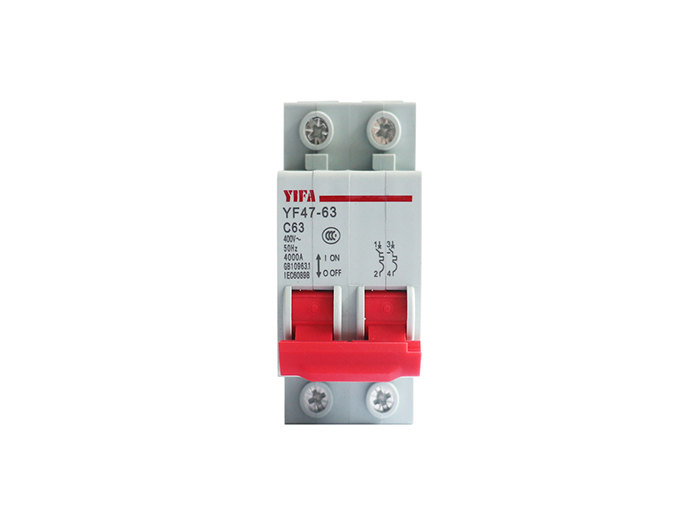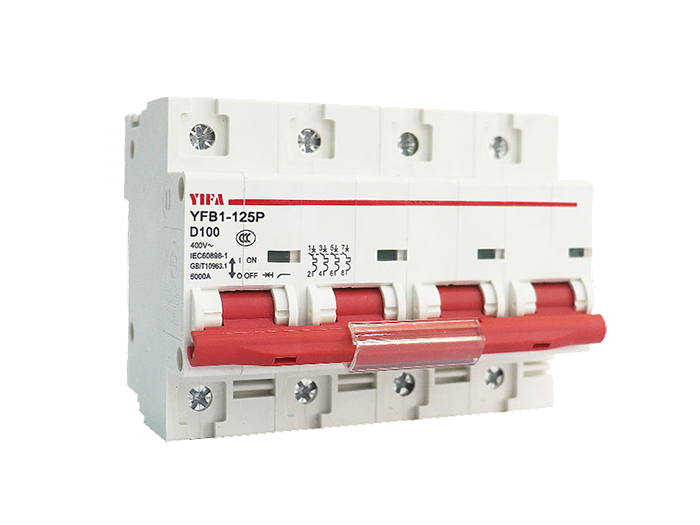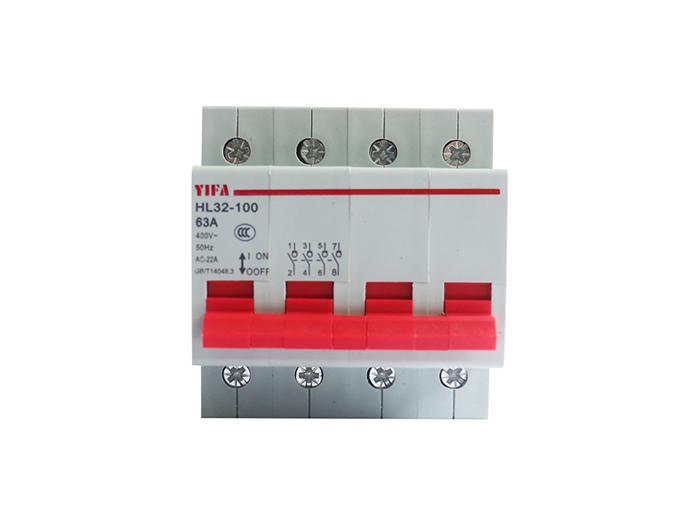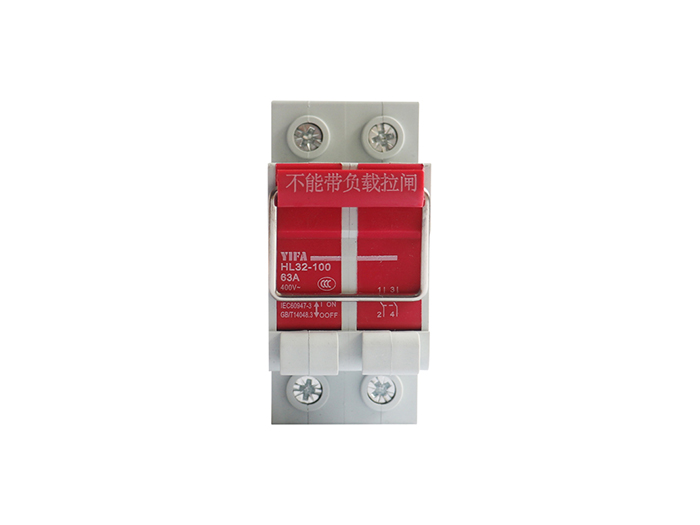Product Advantage
YIFA Miniature Circuit Breakers provide high breaking capacity, safe and user-friendly operation, easy installation across diverse applications, and durable performance with full international standards compliance.
-
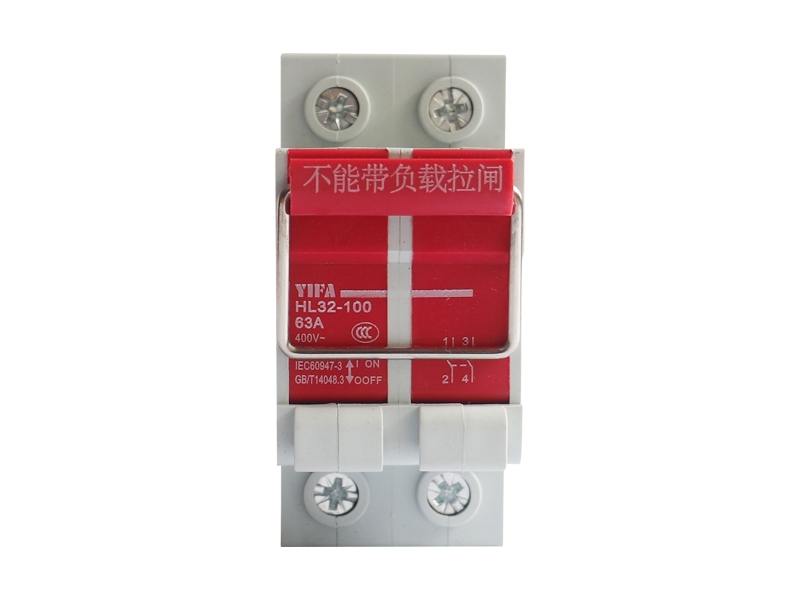
High Breaking Capacity & Reliable Protection
YIFA miniature circuit breakers are designed with breaking capacities up to 10kA, ensuring effective protection against overloads and short circuits in both AC and DC applications.
-
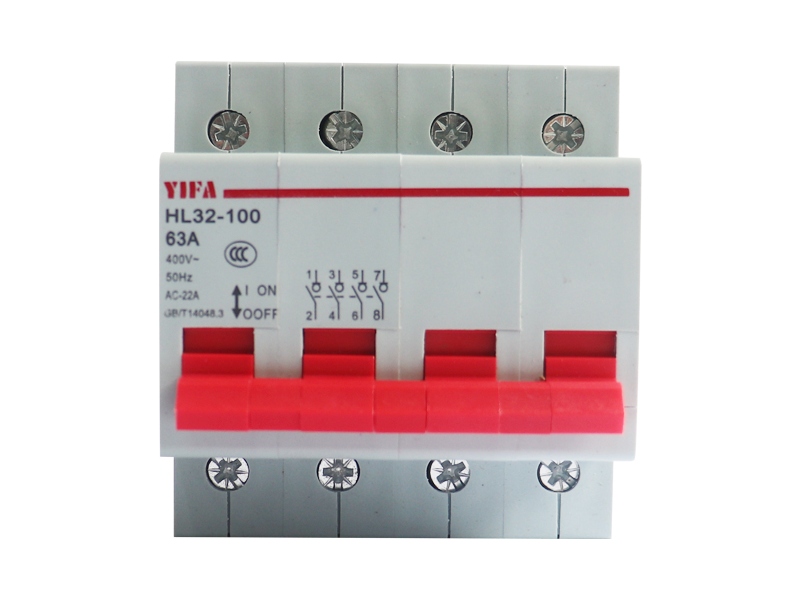
Safe & User-Friendly Operation
Featuring free tripping mechanisms, quick contact switching, and finger-protected terminals, our MCBs enhance safety while providing simple, reliable operation.
-
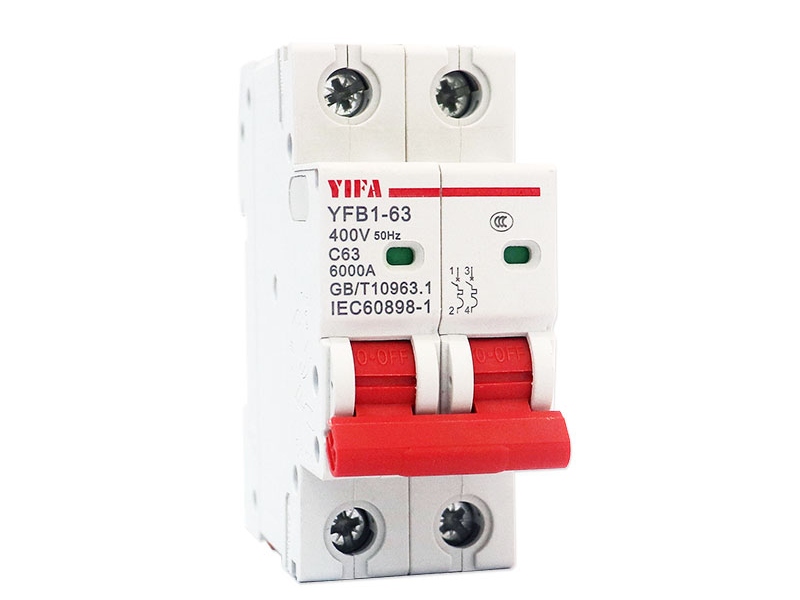
Flexible Applications & Easy Installation
Compact in design with modular rail mounting, YIFA MCBs are easy to install and widely used in industrial, commercial, residential, and high-rise building environments.
-
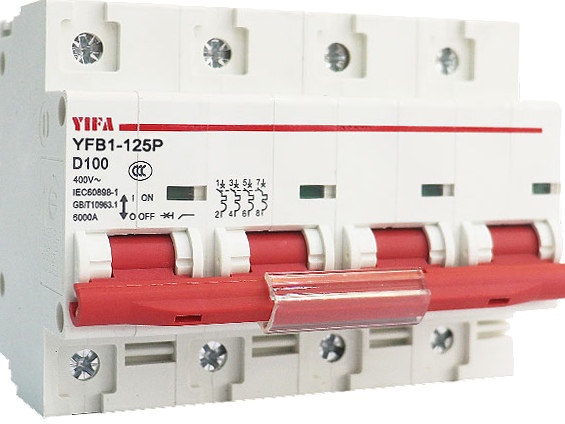
Durable & Standards-Compliant Design
Built to withstand harsh environmental conditions, our breakers comply with GB/T14048.3 and IEC60947-3 standards, offering long service life, stable performance, and reliable isolation switching.
Frequently Asked Questions
-
What is a miniature circuit breaker?

A miniature circuit breaker is an electrical device used to protect circuits from damage due to overload and short circuits. They are typically installed in distribution boards and automatically disconnect the circuit when abnormal current is detected.
-
How do miniature circuit breakers work?

Miniature circuit breakers work through an internal electromagnetic mechanism. When the current exceeds the set value, the electromagnetic mechanism triggers the breaker, causing the contacts to separate and thus cutting off the circuit.
-
What is the difference between a miniature circuit breaker and a residual current circuit breaker (RCCB)?

Miniature circuit breakers mainly provide protection against overload and short circuits, while residual current circuit breakers (RCBOs) offer protection against overload, short circuits, and leakage current.
-
How to choose the right miniature circuit breaker?

Selecting the appropriate miniature circuit breaker involves considering the load requirements of the circuit, voltage level, and specific application environment. Typically, the breaker's rated current should be slightly higher than the normal operating current of the circuit.
-
What does the rated current of a miniature circuit breaker mean?

The rated current refers to the maximum current value that the breaker can safely carry. If this value is exceeded, the breaker will automatically disconnect to protect the circuit.
-
Do miniature circuit breakers require regular maintenance?

Yes, regular inspection and maintenance of miniature circuit breakers are necessary to ensure their proper functioning and extend their service life. This includes cleaning contact points, checking the breaker's mechanical operation, and ensuring there is no damage or wear.
-
What to do if a miniature circuit breaker trips frequently?

If a miniature circuit breaker trips frequently, it may be due to overload, short circuit, or equipment failure. The circuit and connections should be inspected, and a professional should be consulted if necessary for inspection and repair.
-
What is the lifespan of a miniature circuit breaker?

The lifespan of a miniature circuit breaker is typically between 10 to 20 years, depending on the usage environment, frequency of use, and maintenance.
-
Can miniature circuit breakers be used in homes?

Yes, miniature circuit breakers are commonly used in home electrical systems to provide protection for household circuits, preventing electrical fires and equipment damage.
-
How to install a miniature circuit breaker?

The installation of miniature circuit breakers should be carried out by a qualified electrician to ensure compliance with electrical safety standards and regulations. It is not recommended for non-professionals to install them themselves.
-
What types of miniature circuit breakers are there?

There are several types of miniature circuit breakers, including Type B, Type C, and Type D, each corresponding to different current characteristics and application scenarios.
-
What does the ""pole"" of a miniature circuit breaker mean?

The ""pole"" refers to the number of power lines that the breaker can control. Common types include single-pole (controlling one phase wire), double-pole (controlling two phase wires), and four-pole (controlling three phase wires and a neutral wire)."










